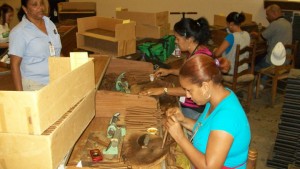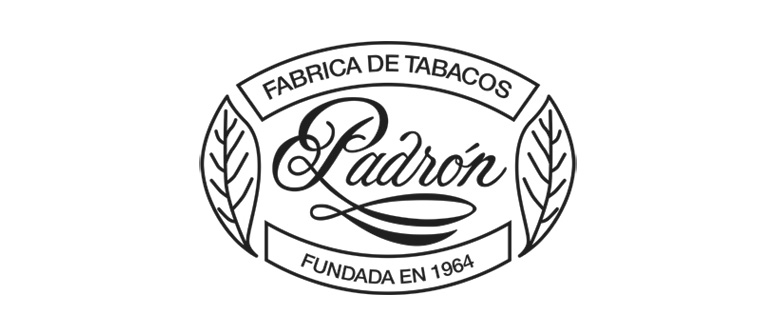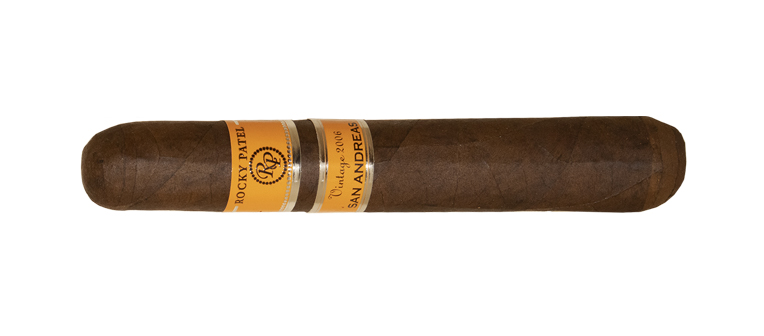The 2nd Most Asked Question in a Cigar Shop
Editorial by David Garofalo
You’ve heard it before, the number one question asked in cigar stores for at least the past few years has unquestionably been “What’s New?” Maybe in the future it will change from “What’s New” to “What’s Good” when the FDA stops all new brands and sizes, but that’s a subject for another time. The Fact is: What’s New is not always “What’s Good”… but that’s not really what I want to discuss today either. I don’t want to talk about the Number 1 asked question in cigars shops across America, but let’s talk today about the #2 most asked question in cigar shops across America. Do you know what it is? If you’re a cigar retailer I bet you do. Think about it.
How many people have asked you “How do I get into The Cigar Business?” If you’re a cigar smoker, a lover of the leaf, if you’re reading this, I’d bet you have either asked the question or at the very least thought about it, “How do you get into the cigar business?”
If you love cigars, wouldn’t it just make sense to do what you love? Not necessarily! Just because you love smoking cigars doesn’t mean you’d be happy or even good in the business of cigars and while you’re thinking about it, what part of the business are you even considering… because there are lots to choose from.
Some options to consider would include; manufacturing, brand owner, manufacturer’s representative, independent representative, retail or in media. Let’s look at them one by one and take away some of the myths and misconceptions about them.
 The first and biggest move would be manufacturing. This requires you to move, yes you will need to move to the operation. Are you prepared to do that? To do it right you have to live there and get your hands dirty. You need to know about farming, fertilization, all aspects of agriculture and employment management. It also requires a small fortune to pull it off properly. You can take it all the way from seed to finished product, which will require years of inventory of tobacco, a huge labor force and lots and lots of knowledge and years of experience which you can either get from your labor force or acquire it yourself. This, my friends is a lifetime commitment, usually multiple lifetimes, built over generations. This is by far the biggest risk but potentially has the biggest reward. There are not many people world-wide doing this whole process of vertical integration. If you are not born into this option, I recommend you stay away from it. It’s a multi-million dollar proposition and many a fortune have been lost trying to pull it off.
The first and biggest move would be manufacturing. This requires you to move, yes you will need to move to the operation. Are you prepared to do that? To do it right you have to live there and get your hands dirty. You need to know about farming, fertilization, all aspects of agriculture and employment management. It also requires a small fortune to pull it off properly. You can take it all the way from seed to finished product, which will require years of inventory of tobacco, a huge labor force and lots and lots of knowledge and years of experience which you can either get from your labor force or acquire it yourself. This, my friends is a lifetime commitment, usually multiple lifetimes, built over generations. This is by far the biggest risk but potentially has the biggest reward. There are not many people world-wide doing this whole process of vertical integration. If you are not born into this option, I recommend you stay away from it. It’s a multi-million dollar proposition and many a fortune have been lost trying to pull it off.
 The next option you may consider is manufacturing but without the growing. You purchase tobacco from the growers. It must be aged and cured, as well as having other pre-industry components done to it and you’re going to need to learn how to do that properly. Another part would be to assemble and make blends. You may have packaging made somewhere else and you basically assemble cigars, but there is a lot more connected to it. Then there is exporting, taxes, distribution and sales. Although far less complicated then total vertical integration, this too can be very expensive because you will need to be aging tobacco to keep your blends consistent over years. Even a small manufacturer’s cost will far exceed a million dollars.
The next option you may consider is manufacturing but without the growing. You purchase tobacco from the growers. It must be aged and cured, as well as having other pre-industry components done to it and you’re going to need to learn how to do that properly. Another part would be to assemble and make blends. You may have packaging made somewhere else and you basically assemble cigars, but there is a lot more connected to it. Then there is exporting, taxes, distribution and sales. Although far less complicated then total vertical integration, this too can be very expensive because you will need to be aging tobacco to keep your blends consistent over years. Even a small manufacturer’s cost will far exceed a million dollars.
A different option can be very affordable to many and probably the most popular as its barrier to entry may be the lowest in the entire industry. It’s the Brand Owner. The Brand owner may visit one of the manufacturers or in some cases even other Brand Owners to have a private label brand made for them. For as little as 100 boxes of a size, you can start out and begin in a few different ways. The Brand Owner can supply the manufacturer with the bands and packaging and choose an existing blend from the factory or go through the long drawn out process of blending an entirely new blend with existing tobacco the manufacturer has available. Going even deeper, the Brand Owner could secure other tobaccos for the manufacturer. This can get expensive but it would then be different from what the manufacturer is making for others in that factory including themselves. The brand owner can go even deeper by basically leasing out space in the factory and overseeing their own production using their own tobacco just utilizing the manufacturer’s facilities and labor force. The more components added, the more expensive it costs. Being the lowest barrier to entry in the cigar business we see lots of Brand Owners utilizing all forms discussed here and some even deeper and more creative.
Next option is to become a REP. There are two different ways to represent a cigar company on the road. One is by working for the Manufacturer or Brand Owner directly but not owning the brand in any way,just representing it. The“Rep”orCompanyRepresentativesjob is to be the guy selling it to retailers and handling the accounts on a day-to-day basis. This may or may not include doing in store events and dealing directly with the consumers. They are the area’s face of the brand and work directly for the Brand Owner or Manufacturer. They usually get paid a salary and get all or most of their expenses covered.
Their cost to enter into the business is virtually zero but the competition is tough. Manufacturers and brand owners are usually looking for experience. Not necessarily cigar experience, but sales experience.
Another option to represent a company is as an Independent Broker. This option is where you would create your own company, independently from the manufacturers or brand owner’s company. You may in most cases carry multiple lines and brands from different manufacturers and/or Brand Owners.
This is typically a commission based salary and all the expenses fall on the broker including automobile expenses, gas, telephone, taxes, health insurance and anything and everything else including other employees. Smaller Manufacturers and Smaller Brand Owners usually choose this option as to only have to pay for sales. The more the rep sells, the more money they make, but all the expenses belong to the Independent Broker. A risky option for a job as it is very possible there are times the broker loses money and there is no consistency of pay. The independent reps always run the risk of building a brand or having a brand that gets so popular and sales grow so high that the manufacturer or brand owner chooses to go “in house” with a Company Rep who will work only for them and get a salary while capping commission. This can always be a tough time for the independent broker. Help build the brand and with too much success you lose it, and then must begin the process again with another brand. It’s a tough racket and might look like all fun and games to the average person, but it’s a lonely game of cheap hotels, long days and lots of miles. My hat goes off to all these road warriors… it’s a tough job that I know cigar smokers look at as an awesome job and may wish they could do it, but we know, things are not always as they appear.
 And finally there is the Retailer. This too looks like an easy gig doesn’t it? Retailers sitting around all day drinking, smoking and hanging out with their buddies. Just put a sign out and they will line-up to buy from you, right? If you think that’s how it will work, then this is a recipe for disaster in this business and every business. “Doing Retail” reasonably well requires a lot of time, effort, sacrifice and dedication. This is the part of the cigar industry I know and love the best. It has its fun times including sitting around and smoking with friends yes, but it also requires a lot of work on the back-end. Retailers are responsible for their employee’s salaries and all payroll
And finally there is the Retailer. This too looks like an easy gig doesn’t it? Retailers sitting around all day drinking, smoking and hanging out with their buddies. Just put a sign out and they will line-up to buy from you, right? If you think that’s how it will work, then this is a recipe for disaster in this business and every business. “Doing Retail” reasonably well requires a lot of time, effort, sacrifice and dedication. This is the part of the cigar industry I know and love the best. It has its fun times including sitting around and smoking with friends yes, but it also requires a lot of work on the back-end. Retailers are responsible for their employee’s salaries and all payroll  no matter what, they must be paid before the owner… actually the retail owner is paid very last, after all bills are paid… and sometimes not at all. Add to that the Taxes, Insurances, upkeep of the location(s), Marketing, Promotions, inventory, accounts payable including gas, electric, cable, computer upkeep and a whole bunch of stuff too numerous to mention. All this lies on the shoulders of the Retailer who, while trying to satisfy existing clients, build new ones and paying all the expenses and labor is trying to squeak out some profit if possible to build his company. Let’s not forget the upfront costs, where you can invest your lifetime savings just for the build out of the operation. The build out includes the humidor, computers, displays, decoration, signage and oh ya… the inventory. And how will anyone know
no matter what, they must be paid before the owner… actually the retail owner is paid very last, after all bills are paid… and sometimes not at all. Add to that the Taxes, Insurances, upkeep of the location(s), Marketing, Promotions, inventory, accounts payable including gas, electric, cable, computer upkeep and a whole bunch of stuff too numerous to mention. All this lies on the shoulders of the Retailer who, while trying to satisfy existing clients, build new ones and paying all the expenses and labor is trying to squeak out some profit if possible to build his company. Let’s not forget the upfront costs, where you can invest your lifetime savings just for the build out of the operation. The build out includes the humidor, computers, displays, decoration, signage and oh ya… the inventory. And how will anyone know  you have even opened the business? You must advertise and promote yourself. To do retail properly you need to have backup product, some to show and some to go (sell). While you’re at it, a clean well designed and workable location in a decent area where people can find you. This will require $300,000 to a $500,000 in upfront cost-plus you must be married to it. No more 40 hour weeks my friends. Open early and close late, you need to be there for your customers, the customers you don’t even have yet. How long do you think it will take you to recoup all that investment before you see the fist dime? Usually 3-5 years if you do it perfect. Being a retailer will require that commitment and dedication, total devotion. A good retailer needs continuing education about business not just about cigars. Ongoing business education in an ever-changing world is a must. You might think you know everything about cigars but you may know very little about running a cigar business. This is usually how and why most businesses fail. A great cook probably doesn’t know how to run a restaurant properly for success. This is why restaurants are the biggest failing businesses, more good cooks fail in the business of good food than succeed. A great plumber, electrician or carpenter might be very talented in their skill set but can’t manage, price and operate in the construction business. A cigar smoker doesn’t necessarily know how to run and operate a cigar business. The majority don’t.
you have even opened the business? You must advertise and promote yourself. To do retail properly you need to have backup product, some to show and some to go (sell). While you’re at it, a clean well designed and workable location in a decent area where people can find you. This will require $300,000 to a $500,000 in upfront cost-plus you must be married to it. No more 40 hour weeks my friends. Open early and close late, you need to be there for your customers, the customers you don’t even have yet. How long do you think it will take you to recoup all that investment before you see the fist dime? Usually 3-5 years if you do it perfect. Being a retailer will require that commitment and dedication, total devotion. A good retailer needs continuing education about business not just about cigars. Ongoing business education in an ever-changing world is a must. You might think you know everything about cigars but you may know very little about running a cigar business. This is usually how and why most businesses fail. A great cook probably doesn’t know how to run a restaurant properly for success. This is why restaurants are the biggest failing businesses, more good cooks fail in the business of good food than succeed. A great plumber, electrician or carpenter might be very talented in their skill set but can’t manage, price and operate in the construction business. A cigar smoker doesn’t necessarily know how to run and operate a cigar business. The majority don’t.
There are other ways you can get into the business, you can learn how to grow tobacco and work in the fields or curing barns but it’s tough work. You can learn how to roll cigars in the factories but I’m guessing you won’t like the salary for either of those positions.
Then there is this, blogging or doing a podcast, radio show, or hosting a forum on the subject of  cigar smoking. Maybe you want to critique new cigars and discuss and inform others about them. This should be considered a labor of love and not a business as it requires a lot of consistent cigar education and lots of your time, which too has a cost. Most bloggers pay for most of their cigars, their web sites costs, travel expenses and more. If they have a handful of sponsors, this is to simply defray the cost of operation as few see a profit, ever.
cigar smoking. Maybe you want to critique new cigars and discuss and inform others about them. This should be considered a labor of love and not a business as it requires a lot of consistent cigar education and lots of your time, which too has a cost. Most bloggers pay for most of their cigars, their web sites costs, travel expenses and more. If they have a handful of sponsors, this is to simply defray the cost of operation as few see a profit, ever.
So what will it be? Do you still want to get into the cigar industry? An industry that is consistently regulated and taxed, an industry that is looked upon as evil by some and grouped with others in a bad way. If the answer is still YES… jump on in! Personally, I love it, and I can’t get enough of it. I’ve been in it for over 30 years and look forward to the next 30, god willing. It wasn’t easy and it’s not easy now for me or anyone I have ever met in this industry. The ones that are successful did so the hard way, they earned it… every one of them without exception. Nobody in the Cigar Industry that I know “got lucky.” That being said, the ones that failed, some of them did not deserve to fail… but some did. It’s a tough racket and it’s not all fun and games… but it is some time. As we prepare for our annual cigar trade show this week, I see people looking, thinking and asking the number two question asked in the cigar shop – “How do I get in the Cigar Business?” My question to you is “Do you want to?”




